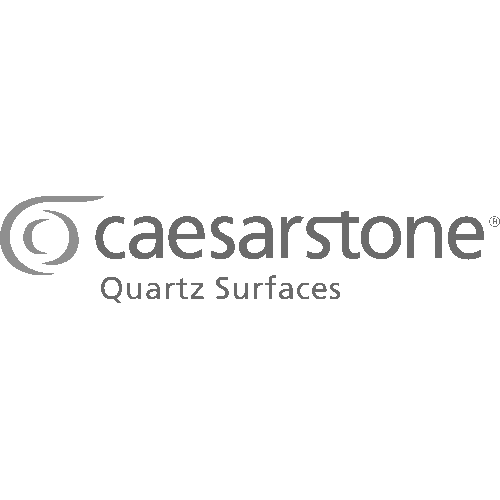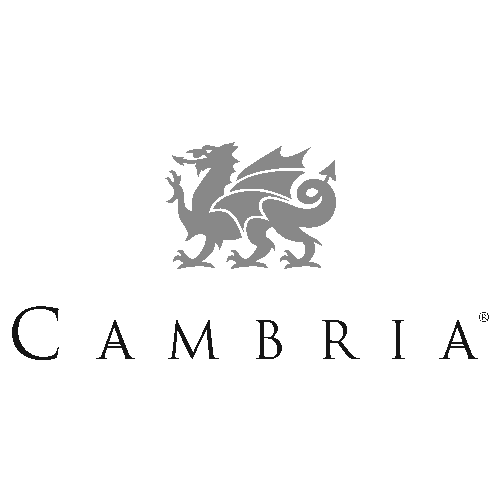The Advantage of Quartz Countertops
Quartz is one of the hardest materials you can use for your countertop. Unlike natural stone, quartz is an engineered product. Quartz has risen to popularity as a countertop material due to an outstanding combination of aesthetic qualities and practical benefits. Here are some of the top advantages of quartz counters:
Aesthetic Qualities:
- Wide range of colors and patterns – From minimalist solid whites to bold granites, quartz can suit any style.
- Mimics natural stone appearance – Quartz is engineered to capture the look of marble, granite, and other stones.
- Consistent patterning – While natural stone is subject to variation, quartz patterns are uniform.
- Glossy or matte finishes – Both polished and sueded finishes are available.


- Non-porous – Unlike natural stone, quartz does not need regular sealing.
- Resists stains – Quartz repels stains much better than granite or marble.
- Durable – Quartz stands up well to heavy usage, scratches, chips, and cracks.
- Heat resistant – Quartz counters can withstand exposure to heat up to 300°F.
- Low maintenance – Simple soap and water cleaning is enough for quartz.
- Antibacterial – Some quartz contains antibacterial properties to discourage bacteria growth.
With this winning combination, it’s no surprise homeowners love this engineered stone for everything from kitchen countertops to bathroom vanities. Beauty, practicality, and longevity make quartz an ideal surface.
How are Quartz Countertops Made?
Quartz is a highly durable, abundant mineral found in natural stone. For countertops, quartz is ground into a fine powder and then combined with polymer resins and pigments under intense heat and pressure. This forms an engineered stone material that is molded into slabs and fabricated into counters. The result is a very hard, non-porous surface that has the appearance of natural stone but requires much less maintenance. Unlike granite and other natural stones, quartz does not need to be regularly sealed to prevent staining.
The polymer resins make quartz more flexible and workable than pure natural stone. This allows quartz counters to be fabricated with customized edges and cutouts. The resins also make the material resistant to cracks and chips. Pigments added during manufacturing give quartz counters a wide range of color options. Simple solid colors are available, along with patterns made to mimic granite, marble, and other luxurious stones.
With both natural beauty and practical properties, it’s easy to see why quartz has joined granite and solid surface materials as a go-to option for countertops. Combining durability, low maintenance, and customization, quartz offers homeowners an appealing new surface.
Pros and cons for quartz countertops:
Pros:
- Durable – Quartz is an engineered stone made from crushed quartz, making it very hardy and resistant to scratches, stains, and heat. It does not need to be sealed like natural stone.
- Low Maintenance – Since quartz is non-porous, it does not require regular sealing or polishing. Simple cleaning with mild soap and water is all that is needed.
- Variety of colors and patterns – Quartz comes in a wide range of colors and patterns that can mimic natural stone as well as solid colors. Popular brands like Cambria, Caesarstone, and Silestone offer many options to match any kitchen decor.
- Does not need to be sealed – Unlike natural stone like granite, quartz does not need annual sealing to prevent stains. This makes maintenance easier.
- Resists Bacteria – Quartz does not harbor bacteria or allow mold/mildew to grow. This makes it very hygienic.
Cons:
- Expensive – Quartz custom countertops are more expensive than laminate options and sometimes natural stone. Installation also adds to the cost.
- Some Limitations – Quartz cannot be cut for an undermount sink like natural stone. The seams between slabs are also more visible.
- Requires Professional Installation – Quartz counters must be cut and installed by a professional fabricator due to their weight and hardness. DIY installation is not possible.
- Lacks Natural Feel – Some homeowners prefer the unique natural veining and patterns of granite and other natural stones over the uniform engineered look of quartz.
- Requires Replacement – Since quartz countertops are seamless, the whole top needs replacing if badly damaged rather than just a section.
Is a Quartz Countertop Right for You?
When undertaking a kitchen or bathroom remodel, one of the biggest decisions is choosing your countertop material. Quartz has become an increasingly popular option, but is it the right choice for your home? There are several factors to consider.
A major benefit of quartz is its durability, making it ideal for busy kitchens prone to spills, messes, and high traffic. The low maintenance needs also appeal to busy homeowners. In terms of aesthetics, quartz comes in a wide array of colors and patterns. However, the speckled veining is more uniform than natural stone. Those desiring unique, one-of-a-kind patterning may find quartz too consistent. Visible seaming between countertop slabs is also possible with some quartz products. Cost is another consideration. Quartz is competitively priced with granite but is more expensive than options like laminate.
Overall, for those that prioritize a durable, low-maintenance countertop with refined contemporary aesthetics, quartz is hard to beat. But unique veining and budget constraints may make other options better suited for some homeowners’ needs. Carefully weighing your budget, kitchen use, and design goals will determine if quartz is the right material for your next remodeling project.
Longmont stone fabricators, Advantage Stone Fabrication, work with quartz for countertops every day. Contact us and we’d be happy to answer your questions!
Installation and Cost Considerations:
Installing Quartz Countertops
Quartz countertops must be cut to size and professionally installed for proper support and seamless appearance. Here is a brief overview of the installation process:
– Templates are made of existing counters to get exact measurements
– Slabs are cut to size offsite or by installers onsite
– Countertops are secured to cabinets using adhesive and brackets
– Seams between slabs are bonded together for a continuous look
– Backsplashes and edges are cut and installed
– Final finishing work completes the installation
Quartz Countertop Costs
On average, quartz countertops cost $40-100 per square foot installed. However, many factors affect overall costs:
– Basic vs. premium brand – Budget brands like Caesarstone start around $50/sq.ft. High-end brands like Cambria can be $100-150/sq.ft.
– Pattern and color – Simple solid colors are cheaper than bold patterns with lots of variation.
– Edge treatments – Decorative edges like bevels or ogees add $10-15/linear foot. Standard square edges are simplest.
– Thickness – Standard 1 1/4″ thick quartz is ideal for most homes. Going up to 2″ raises cost 15-20%.
– Backsplashes and cutouts – Extra fabrication for sinks, cooktops, or running backsplash increases total price.
– Location – Prices vary regionally based on local installation costs.
With proper care, quartz counters can last decades, making them a valuable investment for busy kitchens. Carefully weighing options for colors, edges, and patterns can help find affordable quartz within your budget.
Design Options
When selecting quartz countertops, one of the biggest decisions is choosing a brand. Here are profiles of some top quartz brands:
Caesarstone
– Offers a wide range of classic and modern colors and patterns
– Great durability with up to a 15 year warranty
– Budget-friendly prices, around $50-70 per square foot
Cambria
– Founded in 2000, known for high-end luxury quartz
– Natural stone and quartz blends create unique designs
– Lifetime limited warranty, but higher prices around $100-150 per sq.ft.
Hanstone
– Founded in 2010 by Hyundai L&C in South Korea as a premium engineered quartz manufacturer
– Offers over 50 colors and patterns, including natural stone looks and solid colors
– Competitively priced starting around $55 per square foot installed
Pental
– Founded in Seattle, WA in 2009, Pental Surfaces manufactures premium engineered quartz
– Prices start at $50 per square foot installed
– Provides 25 year limited warranty and fabricates/installs using certified professionals




